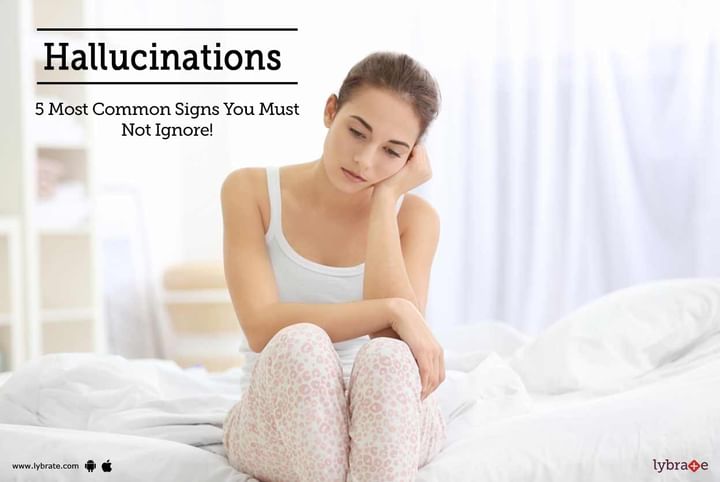Hallucinations - 5 Most Common Signs You Must Not Ignore!
Serious mental disorders and side effects to varied medicines may cause hallucinations in many individuals. Psychosis and Schizophrenia are the most commonly known causes that may cause this condition. Hallucinations are sensations and feelings that may appear as real to the patient, convincing him or her of the occurrence of things that are not really happening in reality. Hearing voices, seeing people, and experiencing things that no one else can, are some of the ways in which hallucinations work.
Let us find out the varied signs and symptoms of this condition.
-
Hearing Voices: One of the most common signs of hallucinations includes hearing voices. You may hear voices from people who cannot be seen or heard by other people around you. In such cases, you may have the distinct feeling of hearing these voices from within or from a source outside your own mind and body. In many cases, you may feel like these voices are trying to talk to you or give you a certain message. Ringing of the ears on a persistent basis may also be experienced in such cases.
-
Visual Hallucinations: These hallucinations will make the patient see things. In such cases, the patient may be witness to a scene that cannot be seen by anyone else – a scene that may not be happening in reality. In visual hallucinations, the patient may also see people that other people in the room or the area cannot see. The patient may also see objects and other creatures like insects crawling across his or her hand, and may react with fear or anxiety, when in reality, no such scene may be happening. These kind of hallucinations also cause occipital seizures where the patient will see spots, shapes and rings of brightly coloured lights that may be coming towards him or her, or even encircle him or her.
-
Feeling Things: These kinds of hallucinations will make the patient feel things that may not really be happening. For example, these hallucinations will make the patient feel hot during winters or feel a blast of air even when there has been none.
-
Taste Hallucinations: In these hallucinations, the patient may get a salty taste from sweet food, or vice versa. These hallucinations make the patient imagine that he or she tastes a certain flavor when in reality, this may not be true. These are also called gustatory hallucination.
- Olfactory Hallucinations: These hallucinations have to do with odd smells that the patient may get a whiff of. In these hallucinations, the patient imagines certain smells like burning, or other odours. Patients may also feel that their own bodies are letting out certain odours which may not be the actual case.
Delusion vs. Hallucination
A delusion is a false belief based on incorrect inference about external reality that is firmly sustained despite what almost everybody else believes and despite what constitutes incontrovertible and obvious proof or evidence to the contrary. The belief is not one ordinarily accepted by other members of the person's culture or subculture (e.g., it is not an article of religious faith).
A hallucination occurs when environmental, emotional, or physical factors such as stress, medication, extreme fatigue, or mental illness cause the mechanism within the brain that helps to distinguish conscious perceptions from internal, memory-based perceptions to misfire. As a result, hallucinations occur during periods of consciousness. They can appear in the form of visions, voices or sounds, tactile feelings (known as haptic hallucinations), smells, or tastes.
Delusions are a common symptom of several mood and personality-related mental illnesses, including schizoaffective disorder, schizophrenia, shared psychotic disorder, major depressive disorder, and bipolar disorder. They are also the major feature of delusional disorder. Individuals with delusional disorder suffer from long-term, complex delusions that fall into one of six categories: persecutory, grandiose, jealousy, erotomanic, somatic, or mixed.
In case you have a concern or query you can always consult an expert & get answers to your questions!



+1.svg)
